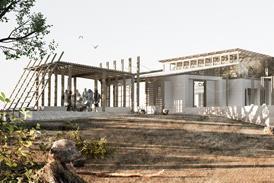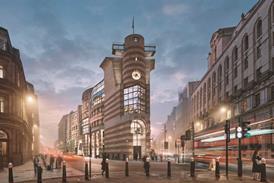- Home
- Intelligence for Architects
- Subscribe
- Jobs
- Events

2025 events calendar Explore now 
Keep up to date
Find out more
- Programmes
- CPD
- More from navigation items
Work stops on Conran’s 1,380-home estate rebuild due to second staircase uncertainty

Joint venture latest developer to halt development since proposed ban on single-staircase in high-rises
Work on Conran & Partners 1,380-home estate regeneration in Romford has been paused because of ongoing uncertainty over the proposed second staircase rule in tower blocks.
Wates Residential and Havering Council have announced a halt to work on Waterloo and Queen Street, under which 270 homes are being demolished and replaced with 10 blocks ranging from three to 16 storeys in height.
…
This content is available to registered users | Already registered?Login here
You are not currently logged in.
To continue reading this story, sign up for free guest access
Existing Subscriber? LOGIN
REGISTER for free access on selected stories and sign up for email alerts. You get:
- Up to the minute architecture news from around the UK
- Breaking, daily and weekly e-newsletters
Subscribe to Building Design and you will benefit from:

- Unlimited news
- Reviews of the latest buildings from all corners of the world
- Technical studies
- Full access to all our online archives
- PLUS you will receive a digital copy of WA100 worth over £45
Subscribe now for unlimited access.






